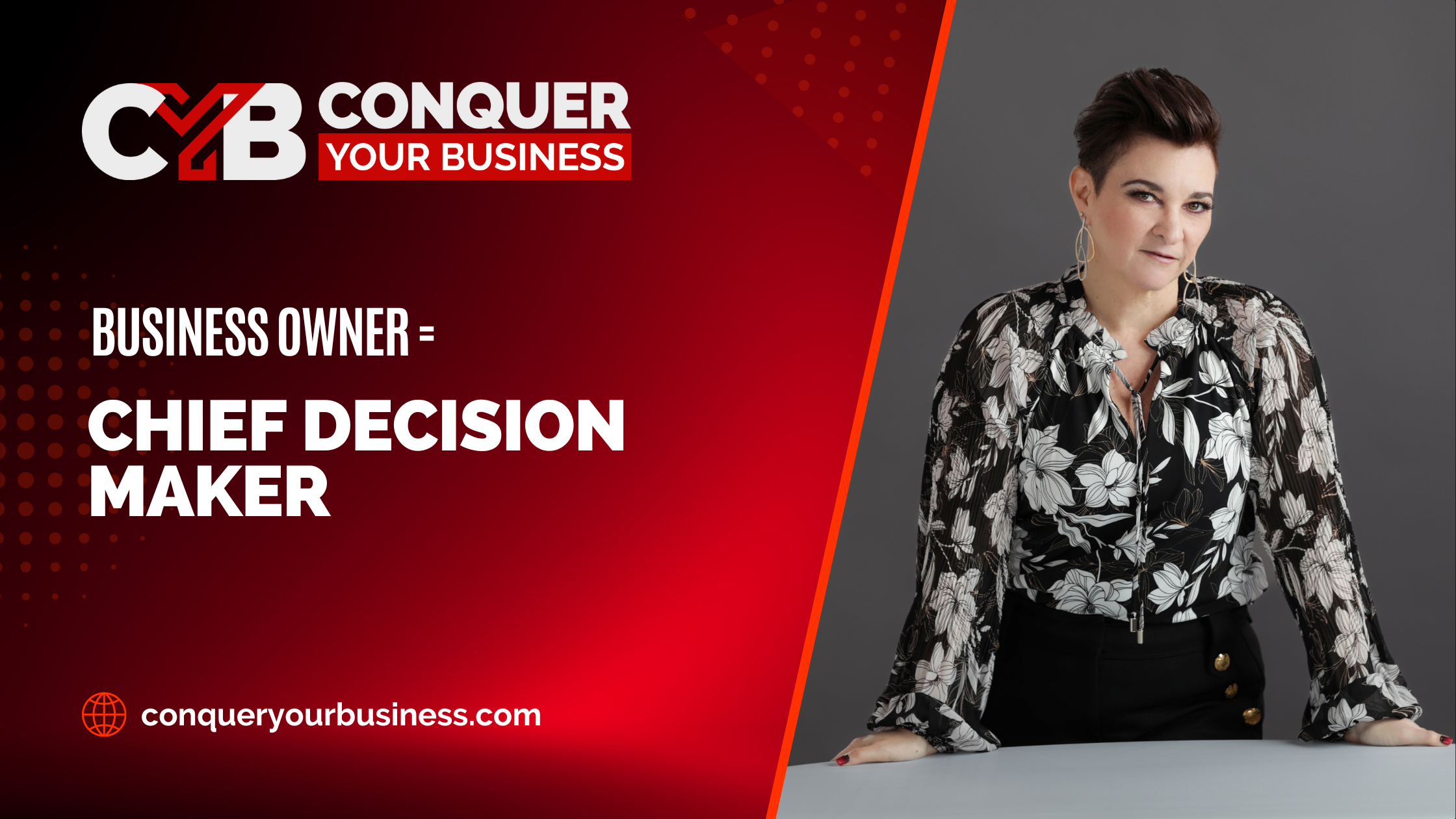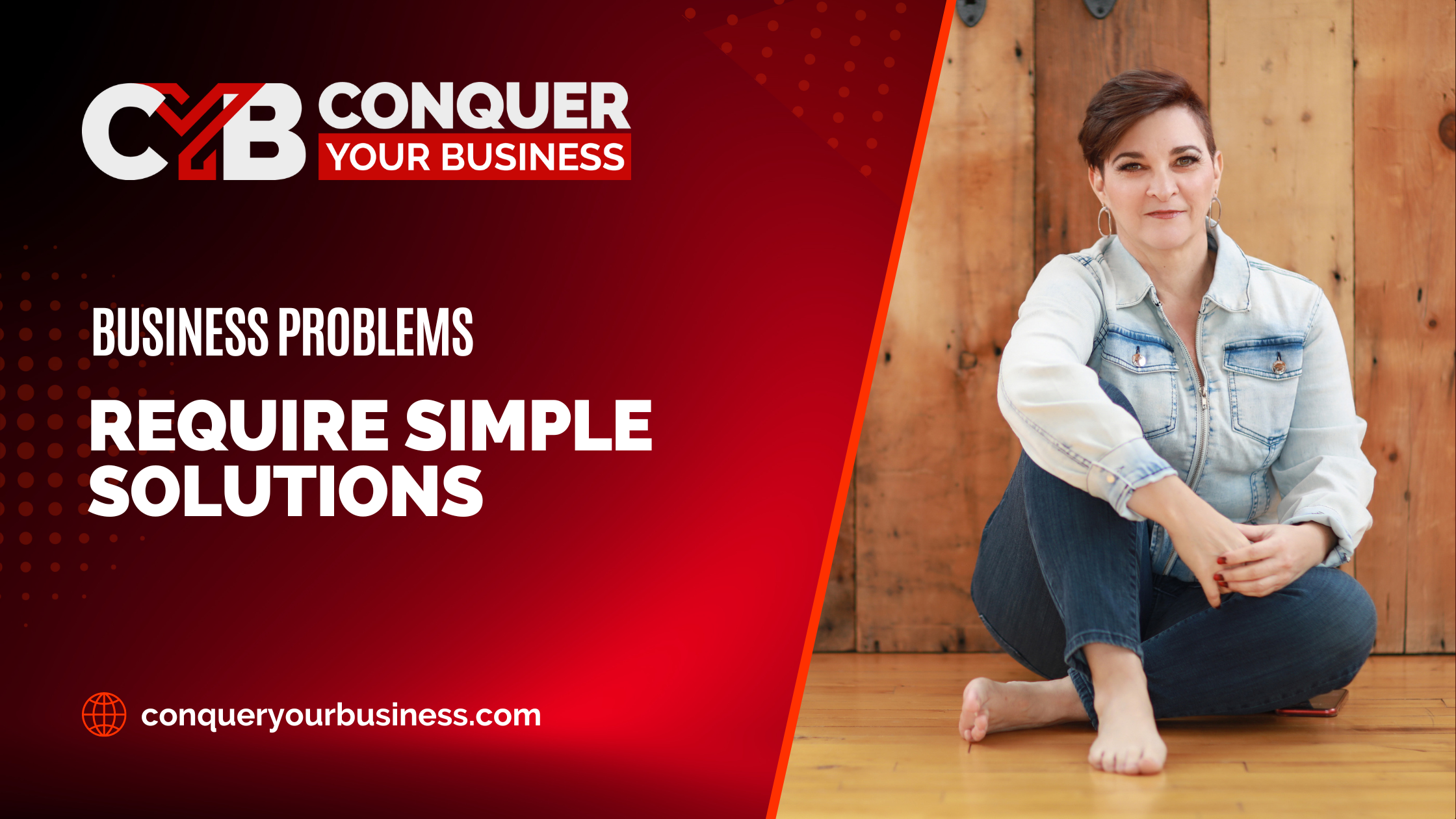While recently reading Fanatical Prospecting by Jeb Blount, the sentence “You cannot be delusional and successful at the same time,” stood out to me because it really combines two things that I find myself saying (and thinking) a lot: the hardest conversation you’ll have is an honest conversation with yourself, and even if you have good gut instincts, your feelings will lie to you.
These are both concepts that I speak about frequently, which is why even though Blount’s book is about sales and prospecting, I think his statement applies to everything in your business.
If you reach a plateau in your business or are not getting the results that you want, doing a review of where you are being delusional about your business, and/or where you might be lying to yourself, either consciously or subconsciously, can help you break through and achieve the success you are working toward.
Lies We Tell Ourselves: “I tried that, it didn’t work.”
One of the most common situations in which I watch people lie to themselves in business is when they tell me that they tried something and it did not work. The truth is, I have yet to meet a very successful person who has told me that they tried something and it did not work. We all try things that do not work. However, a successful person does not stop with the sentence, “I tried that and it did not work.” Instead, they look for exactly what did not work, what they can tweak, and how they can get a different result the next time.Then they keep going until they make it work.
If you find yourself saying, “I tried that and it did not work,” as a reason to not keep trying, it is time to stop yourself and examine what you really meant. Did you try it but it did not work, and you felt uncomfortable so you stopped? Or did you really, truly try something, analyze the results, tweak it, and try again, over and over, until it either worked or you knew for sure that it was not going to work?
In my recent blog Stop Waiting for Things to Just Happen in Your Business I talked about the concept of trying something once and then stopping, versus following up your actions with persistence and determination.
You cannot lie to yourself over how persistent you are truly being if you want to be successful.
The Truth About Being a True Business Owner
The second place I see people being delusional is about what it’s like to be a true business owner. Most people go into business to do the thing that the business does. However to cross the bridge from entrepreneur (or self-employed or freelancer or solopreneur) to being a true business owner, you have to learn to do things differently or to do new things that you have never tried before.
Being a business owner, instead of a self employed entrepreneur, means that you have to be a salesperson. You have to embrace being a marketer. You have to learn to be a leader, because you cannot scale a business alone. It means making better decisions and having difficult conversations. It means being really open and upfront with yourself. Being a business owner means setting expectations and holding people to those expectations. It means making investments and taking risks. It means taking the time to be methodical and strategic instead of just “winging” it.
All of those qualities are things that you signed up for when you started a business, so you have to be able to acknowledge and embrace being all of those things in order to be successful. Even more importantly, you have to be able to realize where you are falling short, so that you know what you need to work on. If you are not all of these qualities right now, it does not mean you cannot be successful. By having an honest conversation with yourself about where you are in those categories, you will figure out all sorts of important data so you know where you need to do more work.
Being Realistically Optimistic as a Business Owner
The third place that delusions show up is when we are being too pessimistic or too optimistic. Those sound as though they are contradictory, but both create problems in your business.
Being too pessimistic is similar to having imposter syndrome. This leads to not charging what you are worth for your services, or being bold enough to ask for someone’s business during a sale’s conversation. You might tell yourself that it’s too hard to find the right team, too hard to manage a team, or too hard to train a team, so you just try to do everything on your own. Pessimism equates to a scarcity mindset that actually puts limits on your success and your ability to scale your business.
Being too optimistic is equally damaging because you can miss the truth about the reality of what is happening in your business. You tell yourself that you are always busy doing so many things, and then miss the fact that what you are doing is not actually effective. Or you see a large number of likes on your social media posts, and that your email list is growing rapidly, and then feel optimistic about how many people are following you, but miss that they are not the right client avatar or that you don’t have the pieces in place to convert those people into clients.
Being overly optimistic puts you at risk to misunderstand that getting likes on a social media post is not the same as converting prospects into clients. When you are too optimistic about how many people like your content, you can miss the fact that you do not have a call to action in place, or a client awareness system, or a client journey that converts leads to sales. When you are optimistic about the wrong things, you are likely to miss areas in need of improvement.
An Honest Conversation with Yourself
If any of these things sound familiar, it’s time for an honest conversation with yourself. It is important to periodically sit down and take some time for reflection, so that you can take an inventory of your business. This is a chance to think about what it is that you really want to create, and to be honest with yourself about where you might be holding yourself back.
While taking this time, think about where you are not getting the results in your business that you want. Think about where you are stuck, and why you are not able to cross to the next income level even though it feels like you are doing so many things right, whether it is the next 6-figure milestone or to 7-figures. Where can a few different delusions about yourself and your business be holding you back?
To make this activity more organized and help you know where to focus your time, you can download a copy of the Business Growth Profiler, which breaks your business down into different categories and allows you to identify what stage you are at in each category: Launching, Leveraging, or Leading.
The good news is that even though having an honest conversation with yourself can be uncomfortable, there is nothing that you will discover during this self-reflection that cannot be overcome. You just have to be willing to do it.
To schedule your conversation with us, click on Book a Discovery Call.




